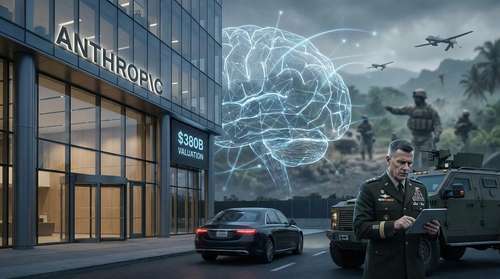In a sensational crime case from 2019, an Ohio man faced allegations of a gruesome murder involving multiple family members.
The court relied on data extracted from the accused's car by the Berla Corporation, a vehicle forensics company.
The technology accessed text messages, GPS locations, call histories, and more, spotlighting the controversy around sacrificing personal privacy for law enforcement needs.
Law Enforcement's Reliance on Berla Corporation's Tools
Law enforcement agencies' use of Berla's technology, often without public awareness, raises fundamental questions about car data privacy.
As automobiles increasingly integrate computer systems that collect vast data sets, concerns regarding privacy breaches and the extent of data access continue to escalate.
Berla Corporation, a key player in vehicle forensics, has gained widespread use among law enforcement agencies across various regions like San Diego, San Antonio, and Anne Arundel County, Maryland.

Not available to the general public, their tools offer extensive access to vehicle profiles and data retrieval from infotainment systems.
With capabilities encompassing 20,752 car types as of March 2022, Berla's tools allow access to navigation systems and phone data linked to a car's infotainment center.
Impact of Car Computers on Privacy Rights and Law Enforcement
Incorporating computers in cars has transformed them into data-rich entities, accessible targets for law enforcement investigations.
Departments like the Department of Homeland Security and U.S. Customs and Border Protection have previously partnered with Berla, utilizing its forensic kits to access vehicle data without clear guidelines on privacy boundaries.
The Impact of AI-Enabled Vehicle Forensics on Society
As sophisticated digital extraction techniques become commonplace in law enforcement, concerns over warrantless data access grow.
The absence of stringent regulations leaves car searches and data extraction from vehicles under lower legal standards than searching cell phones, creating potential privacy infringements.
Legal and Ethical Implications
Legal precedents, such as the automobile exception, grant law enforcement leeway in extracting data from vehicle systems. However, the precedent primarily focused on tangible objects, not the immense digital data stored in modern cars.
Calls for legislative action to address the use of digital extraction techniques by law enforcement agencies are gaining traction, emphasizing the need for updated state and federal laws governing car data privacy.
Challenges in Protecting Consumer Privacy
The fundamental design of today's computerized car features neglects consumer privacy, leading to data retention concerns.
Car manufacturers and software providers like Berla often collaborate closely, creating challenges for consumers to control or erase data stored in vehicles.
Retrofitting privacy enhancements into existing systems poses logistical and financial difficulties, requiring substantial investments and supply chain changes.
The convergence of modern vehicle technology with law enforcement's reliance on sophisticated digital extraction tools presents a complex dilemma.
The series calls for comprehensive legal frameworks that balance investigative needs with individual privacy rights in the digital age.
The case of Berla Corporation's tools and integration into law enforcement practices show the critical importance of initiating discussions, setting boundaries, and establishing robust legal safeguards to protect consumer privacy in an era where cars have transformed into mobile data repositories.




